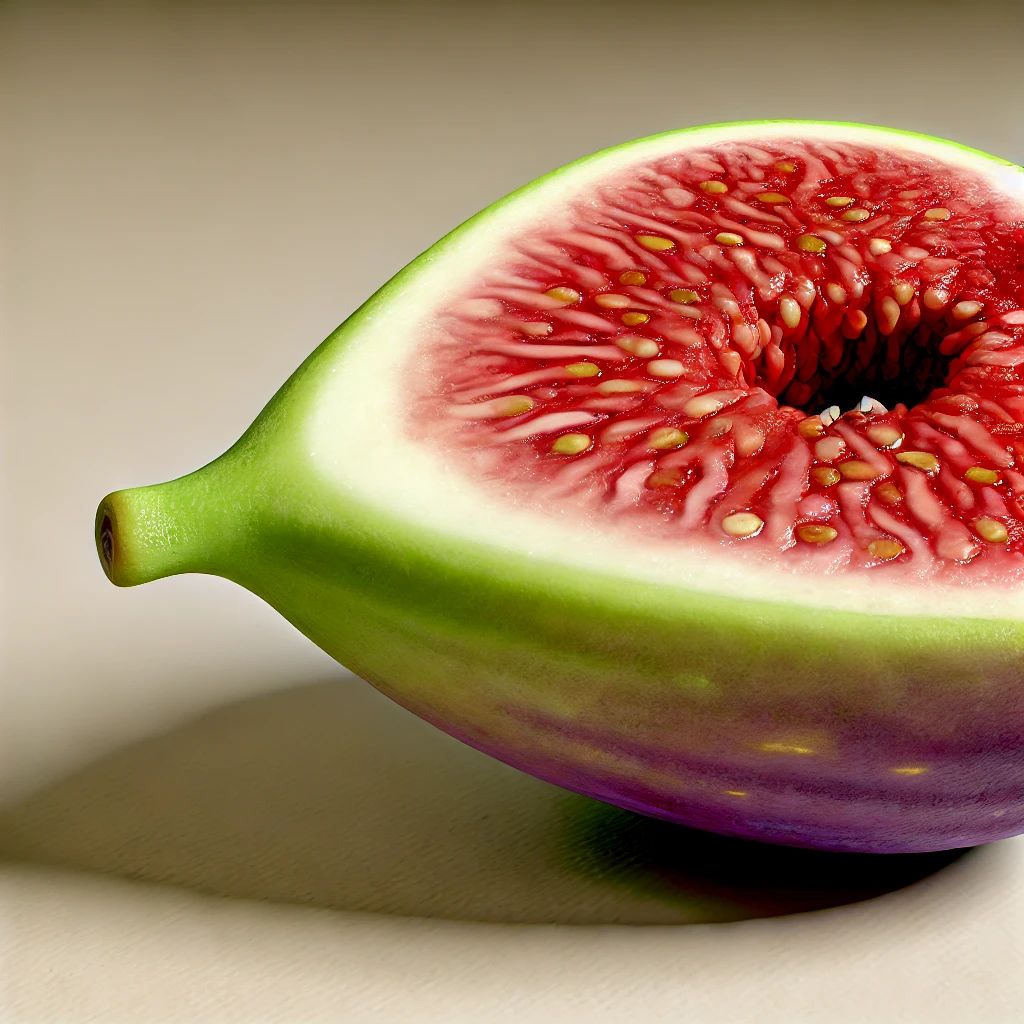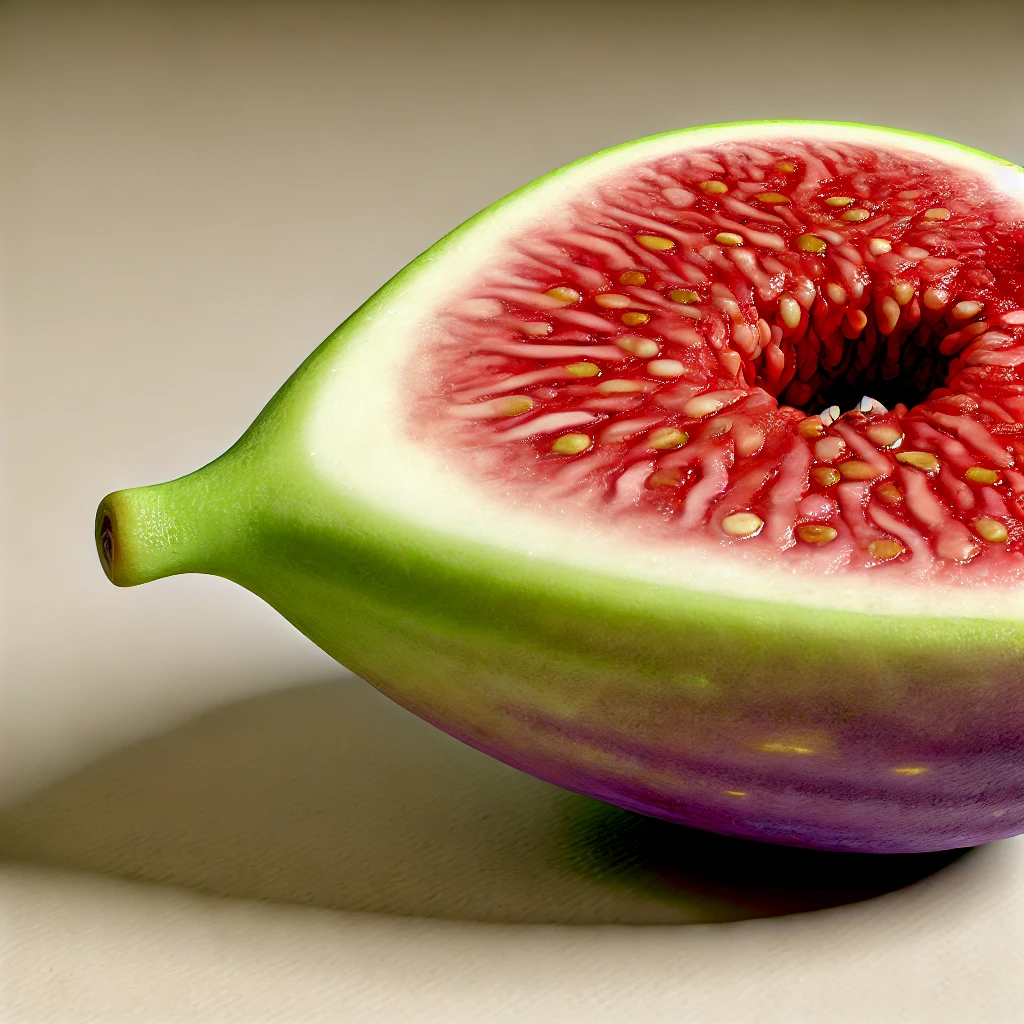Figs, also known as “smokva,” have a long history and significant cultural importance in various civilizations. This fruit is not only delicious but also extraordinarily nutritious, offering numerous health benefits. In this article, we will explore what makes figs unique and why they should be a part of your diet.

History and Origin of Figs:
Figs originate from the Middle East and the Mediterranean and have been cultivated since ancient times.
They are considered one of the first cultivated fruits in human history.
Cultural Significance:
In many cultures, figs symbolize fertility and abundance.
Numerous traditions and rituals are associated with the harvest of figs.
How Figs Are Pollinated:
The pollination of figs relies on a specific wasp known as the fig wasp (Blastophaga psenes).
These small wasps enter the fig flower (which is enclosed within the fruit) to lay their eggs.
During this process, the wasps transfer pollen, enabling the fertilization of the flower.
Lifecycle of the Fig Wasp:
After pollination, the female wasp dies inside the fig, where her body serves as a nutrient source for the developing larvae.
The wasps that emerge then leave the fig to continue the pollination cycle, making figs unique in their dependence on wasps.

Health Benefits:
Rich in Nutrients: Figs are a good source of fiber, vitamins (especially vitamin A and vitamin K), and minerals (such as calcium and potassium).
Digestive Support: The fiber in figs aids in improving digestion and preventing constipation.
Antioxidant Properties: They contain antioxidants that help protect the body from free radicals.
Heart Health: Figs can help reduce cholesterol and improve heart health.
How to Consume Figs:
Figs can be eaten fresh, dried, or as part of various dishes.
They pair well with yogurt, salads, and can be used as ingredients in desserts.
Dried figs are a popular snack option and can be used in baking and cereals.
Interesting Facts:
Figs are among the most fiber-rich fruits in the world.
Ancient Egyptians regarded figs as sacred fruit and used them in rituals.
Figs are also known for their unique aroma and texture, making them popular in perfumes and cosmetics.
Figs are not only delicious and nutritious but also fruits that carry a wealth of history and culture. Incorporating figs into your diet can provide numerous health benefits and enrich your menu. Whether consumed fresh or dried, figs offer a unique taste and significant nutritional value. Don’t forget to explore the various ways to prepare and enjoy this wonderful fruit!
